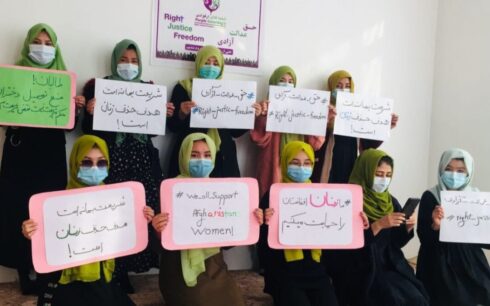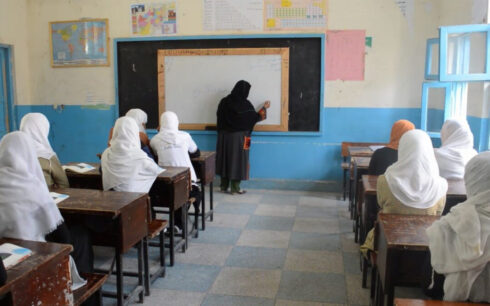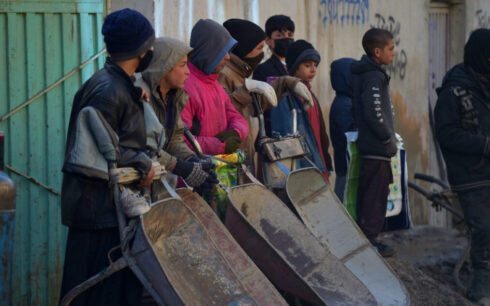A group of aid agencies in an open letter on women’s rights in Afghanistan to the UN Secretary-General ahead of the 1-2 May meeting of Special Envoys on Afghanistan in Doha called for participation of women from Afghanistan at the event.
The letter has been sent on behalf of 12 agencies, including Amnesty International, Global Justice Center (GJC), Global Network of Women Peacebuilders (GNWP), Human Rights Watch (HRW), MADRE, Nobel Women’s Initiative (NWI), Outright International, Refugees International, Women Enabled International (WEI), Women for Women International (WfWI), Women’s International League for Peace and Freedom (WILPF) and Women’s Refugee Commission (WRC).
“We urge you to ensure that diverse Afghan women — including women leaders, human rights defenders, peacebuilders and civil society representatives — are at the table at the meeting of Special Envoys on Afghanistan to be convened on 1-2 May in Doha, Qatar,” reads the letter which is sent by NGO Working Group on Women, Peace and Security,” the letter said.
It added that Afghan women have been clear — failure to ensure their meaningful participation will render any discussions, outcomes or decisions made without them illegitimate.
Since August 2021, Afghan women and girls have confronted unprecedented and systematic violation of their rights. The Taliban’s extreme form of gender-based discrimination against Afghan women has been recognized as amounting to the crime against humanity of gender persecution, and condemned by you and international experts as “gender apartheid,” the letter stated.
The letter read that in this context, the most recent statement by UN Deputy Secretary-General Amina Mohammed, that the upcoming convening of Special Envoys on Afghanistan will provide an opportunity for international actors to “find those baby steps to put us back on the pathway to recognition” of the Taliban, was met with alarm by Afghan women human rights defenders.
They have been clear that there can be no formal recognition of or a seat at the UN for the Taliban, and no unconditional engagement until the Taliban respect international law and face consequences for human rights violations. If Afghan women are not meaningfully represented and politically supported in key decision-making processes at this critical moment, they will have no say in the future of their country, and their exclusion will pave the way for future conflict and violence.
“Meaningful participation — that is, equal, direct, substantive and influential inclusion of diverse women in any decisions about their future — is what women in Afghanistan demand, and deserve, now,” said the organizations.
“We, therefore, urge you to use your influence to insist that diverse Afghan women leaders, human rights defenders and other civil society, including from ethnic and religious, LGBTQI+ and other marginalized groups, are able to fully and meaningfully participate in all meetings to discuss the future of Afghanistan hosted, supported or attended by the UN, and that their views are reflected in the outcomes of these discussions. Women’s rights must be central to all UN engagement, public statements, assessments and strategies to address the crisis in Afghanistan,” the letter said.
The organizations also urged the UN and all international actors to continue to call for all restrictions violating the rights of Afghan women to be immediately and unconditionally reversed.
Failure by the international community to uphold its own international obligations to protect human rights and gender equality will not only have direct and devastating consequences for Afghan women, but will set a dangerous precedent for how women’s rights are addressed in other conflicts and crises across the world, they added.
The rights of Afghan women are not negotiable, the letter said, adding that women in Afghanistan, who courageously and tirelessly fight for their rights every day, need the United Nations and the international community’s support now.





